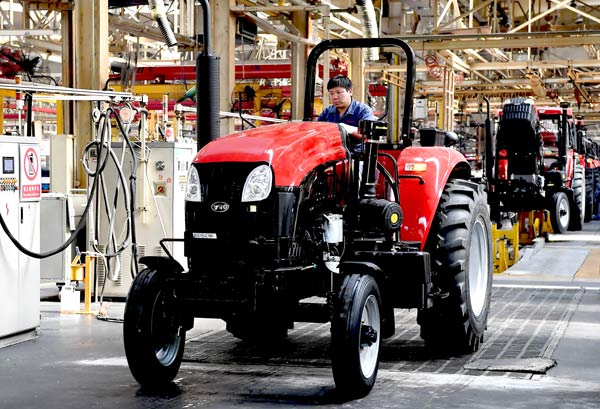SOEs' internationalization process will be accelerated


Xiao Yaqing, head of the State-owned Assets Supervision and Administration Commission (SASAC), said State-owned enterprises, large in size but inadequate to meet the standard of world-class enterprises at present, will be gradually developed into world-class enterprises in the future, according to a report by Economic Information Daily.
Domestically, the mixed ownership system will be promoted and other flexible ownership mechanisms, such as foreign capital and private enterprises, will be introduced in order to effectively transform the State-owned enterprises, Xiao said.
In addition, he said with the degree of openness increasing, the process of internationalization of State-owned enterprises, whose markets are majorly domestic, should be accelerated.
"They are present in the Chinese market, but also need to go overseas. At present, most of the funds that are involved in the mixed ownership reform are domestic. In the future, we welcome foreign companies to participate in the reform of mixed ownership in China's State-owned enterprises," Xiao said.
The total assets of the central State-owned enterprises were nearly 55 trillion yuan last year, with their revenue reaching 27 trillion yuan, the report said. At present, there are more than 300 listed companies among State-owned enterprises and many of them are listed overseas.
Xiao said to build world-class enterprises that are globally competitive, emphasis should be put on strengthening mechanism, innovation, industry, openness and talents.
"The SASAC encourages enterprises to maximize benefits and profits and enhance competitiveness through market operation," Xiao said.
In addition, he said SASAC will support State-owned enterprises to deepen their international operation.
According to Xiao, many State-owned enterprises have already grown into or are close to becoming world-class enterprises and 48 central State-owned enterprises were among the Fortune Global 500 companies last year.
Core products and technologies of some State-owned enterprises, such as high-speed rail, smart grid, Tiangong space laboratories and manned deep-sea submersible, have reached the world's advanced level, Xiao added.
"It should be realized that it is a dynamic process whether to deepen the reform in all directions or to create world-class enterprises. We should take a serious and full view of the shortcomings and recognize where our own gap is, so that we can know how to do," Xiao said.
He said to become a world-class enterprise that is globally competitive requires a company to take a dominant position in the allocation of international resources first.
"At present, many central State-owned enterprises are restricted by a considerable degree in international competition because they depend relatively high on external resources. If the situation cannot be changed, it will be difficult for them to become world-class enterprises," Xiao said.




































